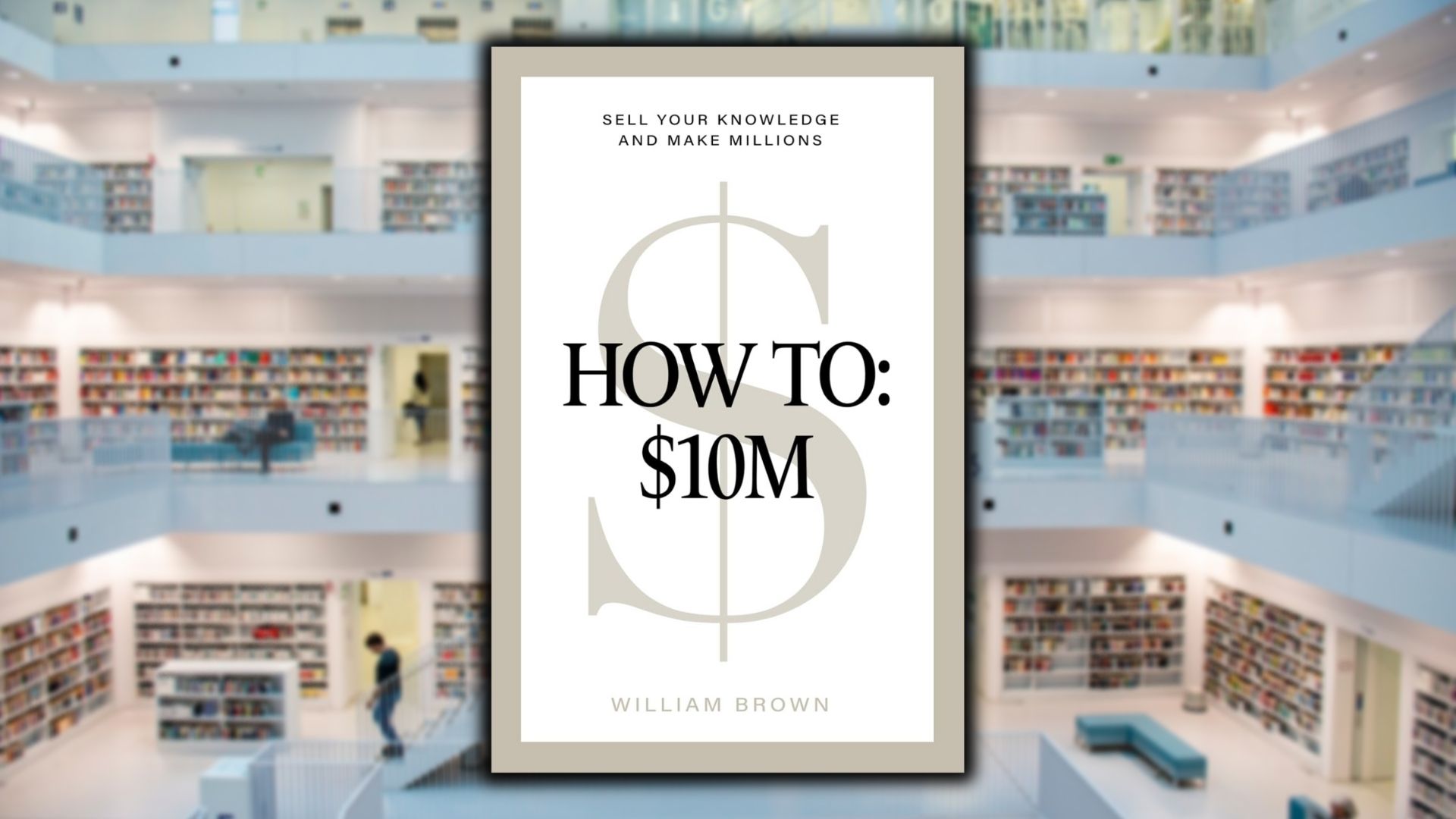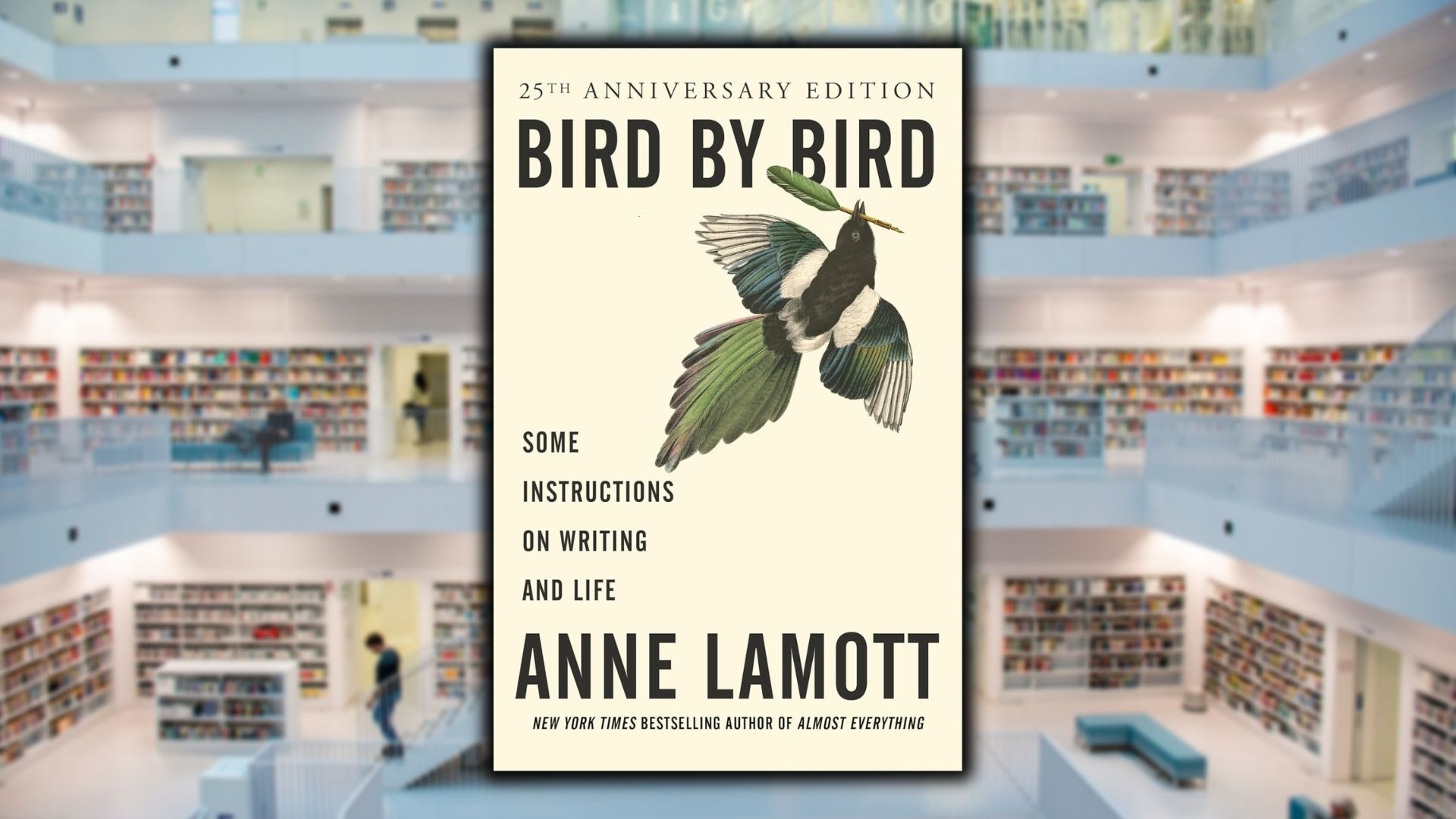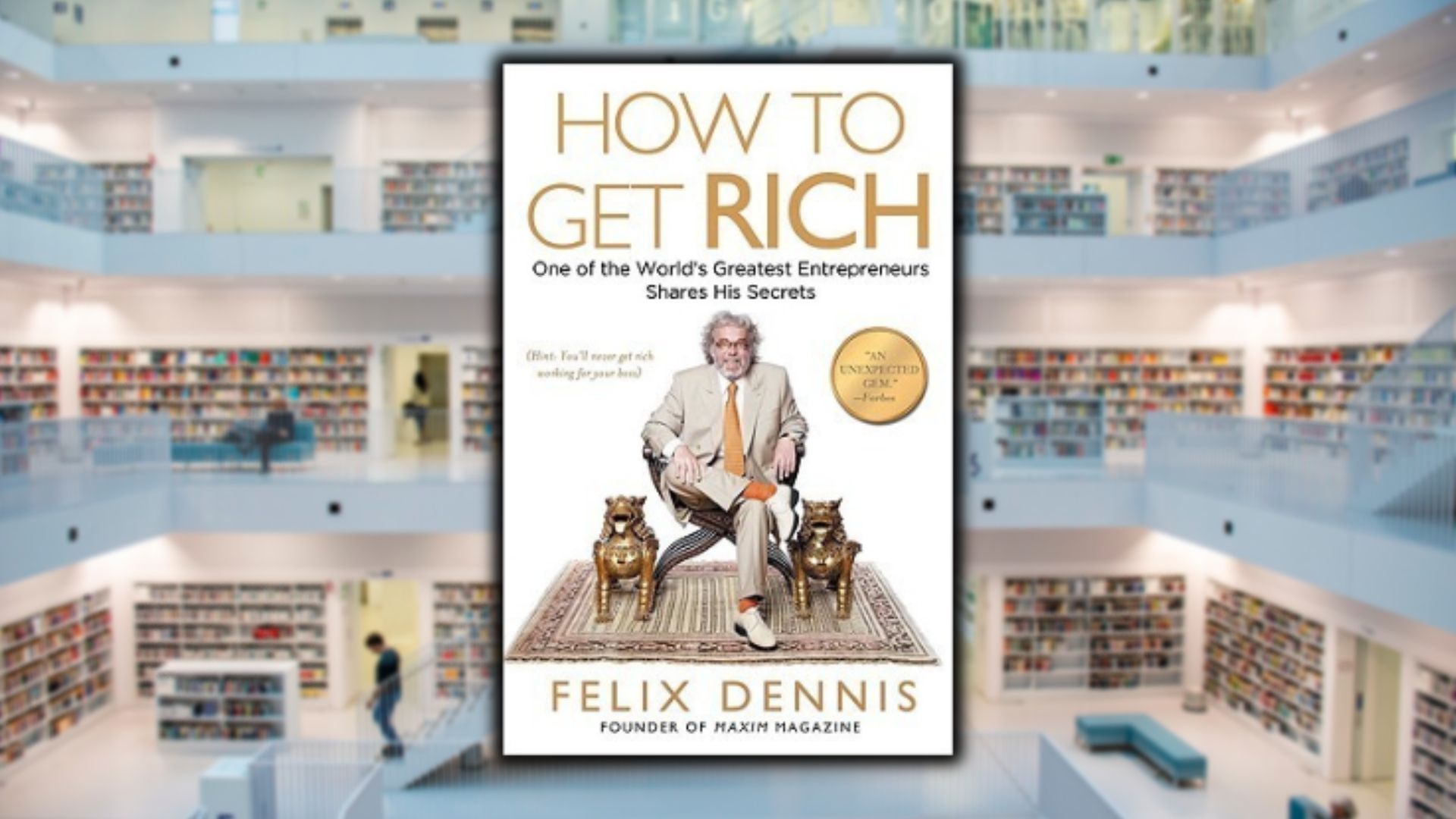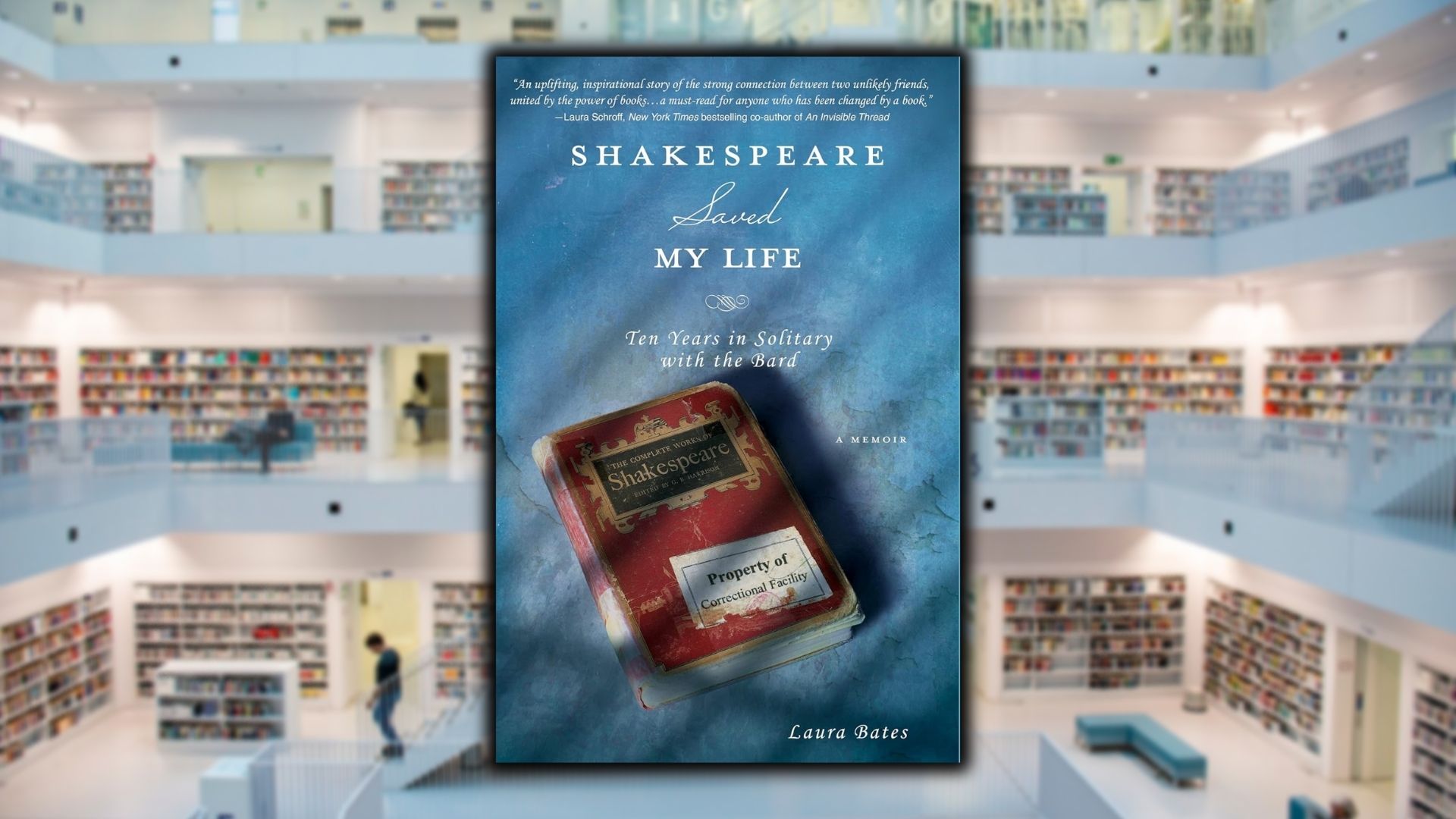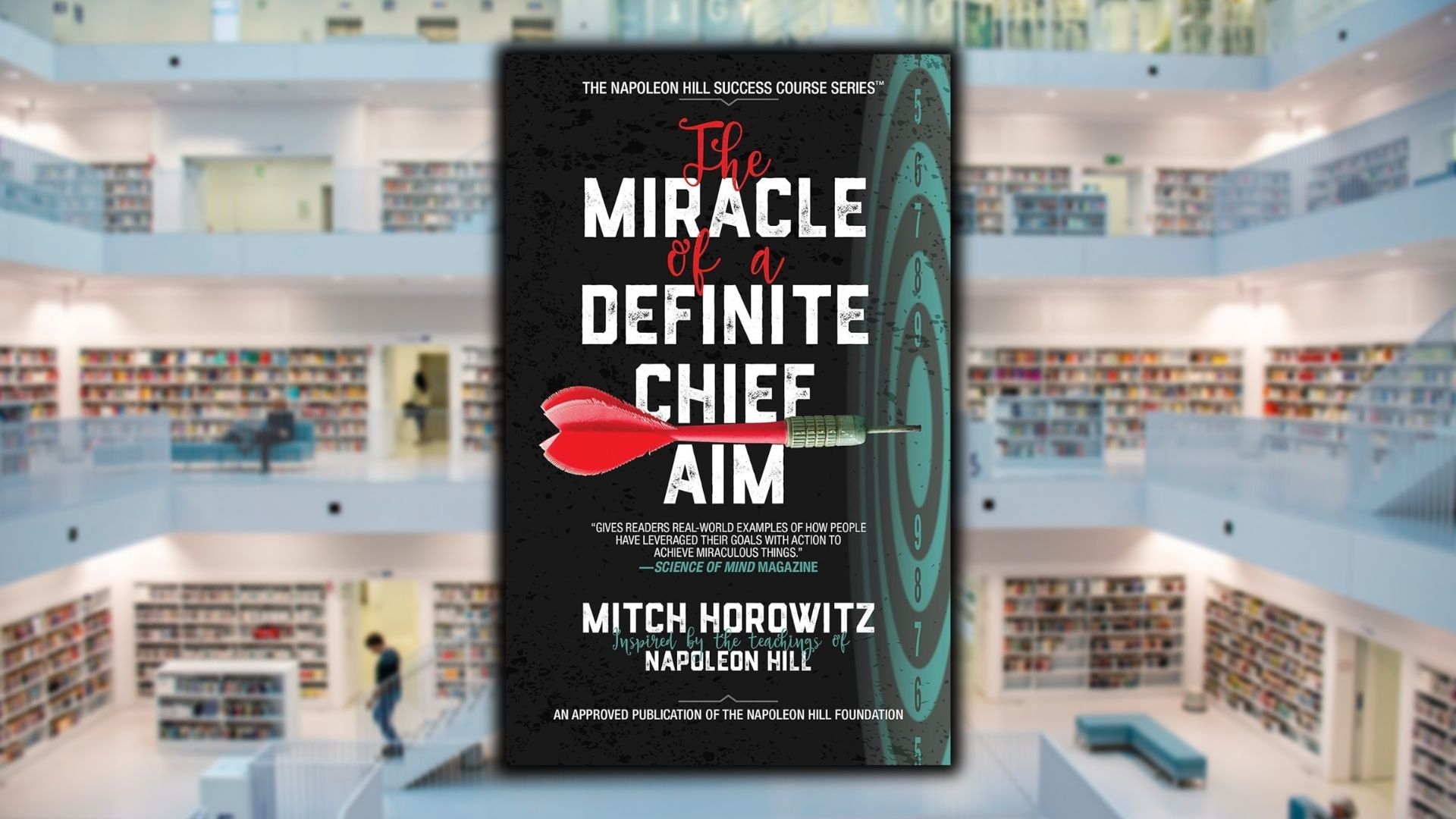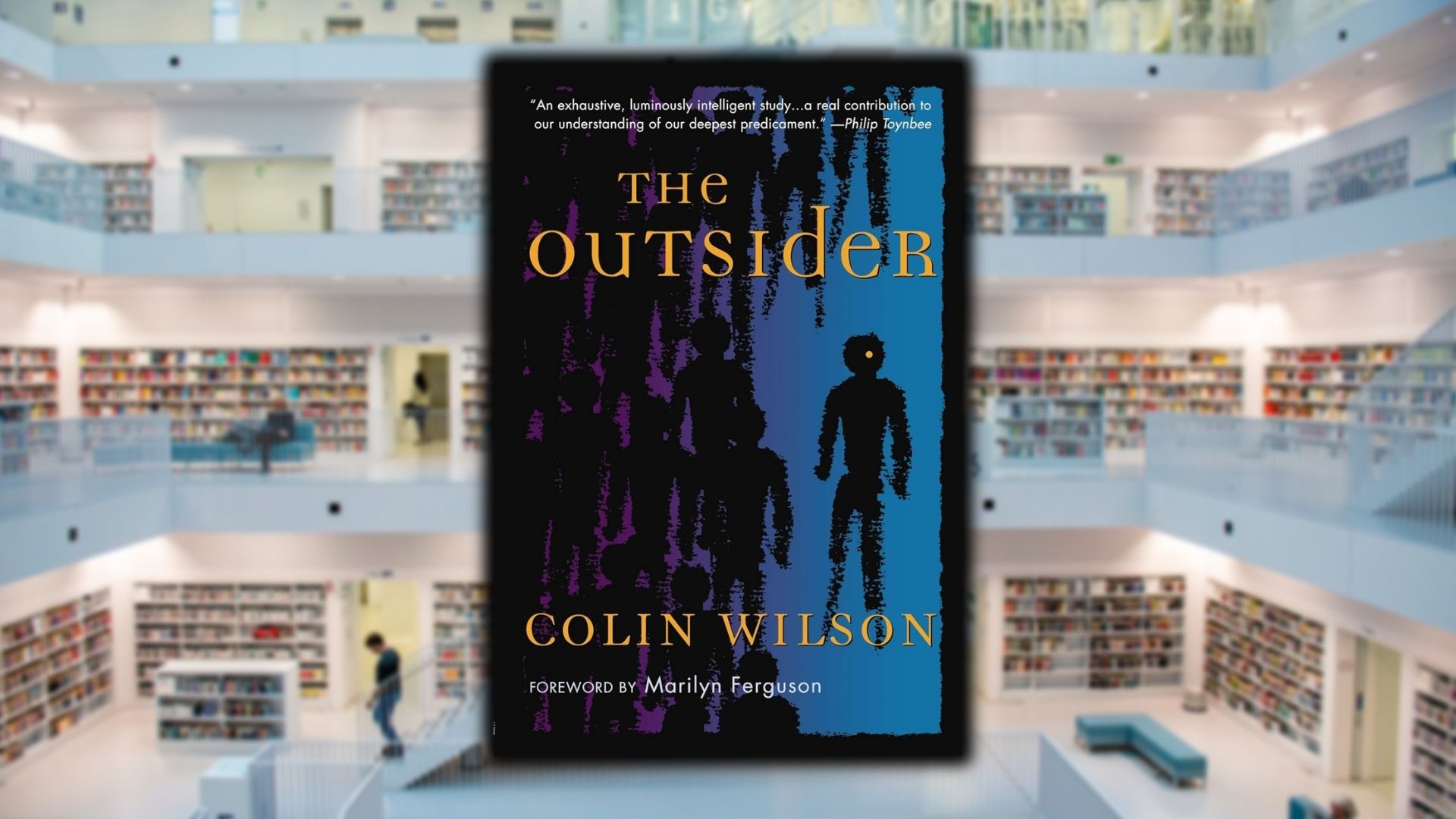One of the things I’m most proud of is that I can bring you book recommendations you’re not likely to hear about anywhere else. I like bringing you variety.
Of course, I’m not blind to the fact that some books get a lot more reach/engagement on social media than others, so you’ll also see me recommend books like Atomic Habits, Can’t Hurt Me, The Psychology of Money, etc.
But after reading 1,400+ books, it would be a shame to limit myself to the same books that everyone else keeps recommending! You deserve better than that.
What I’ve noticed though, is that there are more than a few books I just can’t stop recommending. Tonight, I’ve got ten of them for you.
These are books that made such a big impression on me, changed and improved my life in such a massive way, that I just keep pushing them into people’s hands as often as possible. I can’t help it! I hope you love them as much as I did.
I also want to quickly mention a book I just heard about that looks fascinating (this one), and I’d like to thank another author for sending me his book - 7 Rules for a Calm Mind in a Chaotic World. Looking forward to reading both!
Now, before our coffees get cold, let’s hit the books!
Tonight, Inside The Reading Life, We’ve Got:
“I found myself especially fascinated with philosophy and psychology. But it wasn’t until one weekend when I was twenty-nine and working for CBS in Chicago that enlightenment came.
While reading, it suddenly dawned upon me that I had been reading the same truth over and over again for many years.
I had read it in the New Testament, in the sayings of Buddha, in the writings of Lao Tzu, in the works of Emerson. And all of a sudden, there they were, the words, in the proper order that I had been looking for, for seventeen years.
The astonishing truth that we become what we think about.”
“My point is that you need to consider the entire lifetime value that you are providing to your clients, and everything that comes with the skill that you teach and the awesome experiences that you are creating for them, when you’re pricing your program.
In many cases, when the skills you teach are used to their full potential, they are worth many thousands of dollars to the right person.”
Inside my private business mastermind, Creator Launch Academy, we’re tackling one nonfiction book per month and implementing its lessons inside our businesses.
This month’s book is How To: $10M, by William Brown, a great business book that contains everything you need to know about scaling a coaching and/or e-learning business to more than $10,000,000 in revenue.
Click here to claim your free trial, and join our business book club for educational content creators!
After achieving my (somewhat meaningless) goal of reading 1,000 books before I turned 30, I set a new (also meaningless but cool) goal of reading 10,000 books. As of today, I’ve read exactly 1,423 books, including 69 books so far this year, and if you’re interested, here’s my full Reading List.
“Over and over I feel as if my characters know who they are, and what happens to them, and where they have been and where they will go, and what they are capable of doing, but they need me to write it down for them because their handwriting is so bad.”
This is one of my all-time favorite books about writing, and I don’t think I’ve ever laughed out loud more often than I did while reading it, with the possible exception of the work of David Foster Wallace. To answer the most pressing question, “Why is it called Bird by Bird?” here’s the passage where the title comes from:
“Thirty years ago my older brother, who was ten years old at the time, was trying to get a report on birds written that he’d had three months to write. It was due the next day.
We were out at our family cabin in Bolinas, and he was at the kitchen table close to tears, surrounded by binder paper and pencils and unopened books on birds, immobilized by the hugeness of the task ahead.
Then my father sat down beside him, put his arm around my brother’s shoulder, and said, ‘Bird by bird, buddy. Just take it bird by bird.’”
There’s so much incredible stuff in here, it’s just an inexhaustible well of wisdom, creativity, and motivation for making the craft of writing your life’s work. And now, of course, I recommend it all the time.
I have more than eight pages of notes on everything from the advantages and pitfalls of actually getting published, to the more technical considerations of character, plot, and voice, all the way through to what books are actually for, and why any otherwise sane person would want to dedicate their life to writing them.
I honestly can’t say enough wonderful things about this book, and as far as I’m concerned it’s an absolutely essential book “on writing,” right up there with On Writing, by Stephen King, and The Writing Life, by Annie Dillard, among others.
Just like a really fantastic novel, I keep coming back to it, again and again, and every time I do, I come back richer and wiser than before, in all sorts of wonderful ways.
Difficulty Rating: Easy
Why I’ll Never Stop Recommending It: Writing can feel so lonely and hopeless, and this book serves as a reminder that writers have always felt this way, and that there’s nothing wrong with you. For its humor, warmth, and excellent advice, I’m always going to be quick to recommend this one.
“If you will not believe in yourself, then why should anyone else? Without self-belief, nothing can be accomplished. With it, nothing is impossible. It is as brutal and as black and white as that. If you take no other memory from this book, then take that single thought. It was worth a damn sight more than the price you paid for it.”
From college dropout to centimillionaire publishing magnate, all the while harboring an immense love and talent for poetry and the written word, Felix Dennis certainly has the credentials to write a book like this.
But there’s also something tragic about the overall tone of How to Get Rich - tinged with regret as it is - and he actually spends a fairly large portion of the book trying to convince you not to get rich.
It can be extremely difficult, it’s uncertain, it takes a long time, it can ruin your relationships, alienate you from the people you work with, and on and on.
He speaks from personal experience, having amassed personal wealth in the area between $600–900M (rich people know how much money they have, but wealthy people are never entirely sure), and you get the sense that he’s suffered all those losses and more.
In fact, he straight up tells you as much, and interspersed with all this great advice about running companies and amassing wealth, he keeps coming back to the question of, “Do you really want to do this?” The answer is non-obvious and shouldn’t be rushed.
Read this book first and ask yourself whether you’re willing to pay the price that he paid. Most people won’t be, and there’s certainly no shame in that!
All told, this is one of the very best books I read in 2023, and probably one of my favorites of all time. I learned a tremendous amount about growing and running a profitable business, but it’s a very special book for many other reasons as well, and one that I’ll not soon forget.
Difficulty Rating: Easy
Why I’ll Never Stop Recommending It: One of the most genuinely helpful business books around, it’s also got this radical honesty and earnestness that makes you take what Dennis is saying seriously. In a world where everyone with an eBook is trying to tell you how to make money, How to Get Rich remains a classic.
“Do not indulge in dreams of having what you have not, but reckon up the chief of the blessings you do possess, and then thankfully remember how you would crave for them if they were not yours.”
Ryan Holiday has read this book more than a hundred times, and I can absolutely see why. I’ve only read it twice, but whenever I come back to my notes (which is often), I’m struck again and again by its power and force. The term “life-changing” is thrown around a lot on the internet, but this book is literally life-changing.
Meditations was originally kept as a private journal by the Roman Emperor Marcus Aurelius, who never intended to publish it. But as will become clear as you read through my notes, the entire world has been strengthened and improved because it was published.
Marcus Aurelius was the last of the “Five Good Emperors,” and he’s also considered (rightly) to be one of the most important Stoic philosophers, right up there with Seneca and Epictetus. Those are the three that come to my mind anyway whenever I think of Stoicism.
Meditations is even more astonishing when you think of the time period Marcus lived through, which was characterized by constant wars, invasions, plagues, revolts, struggles…just on and on, and Marcus’s book is his impeccably honest attempt to understand himself and make sense of the universe with all this going on around him.
I honestly can’t recommend this book highly enough, and I can’t even imagine a world without it. To think that it was almost lost to the endless abyss of time is unfathomable to me, and I’m just extraordinarily grateful every time I think about it that it wasn’t.
Difficulty Rating: Easy
Why I’ll Never Stop Recommending It: This one’s a fantastic reminder that people have always faced seemingly-insurmountable challenges in their lives, and they always have more internal resources available than they realize. For that reason? Yeah, this one will definitely keep showing up on my list of recommended reads for a long, long time.
“The day is never coming when all the other stuff will be ‘out of the way,’ so you can turn at last to building a life of meaning and accomplishment that hums with vitality. For finite humans, the time for that has to be now.”
This is not the kind of book where the author peddles a bunch of easy answers, for the simple reason that, when it comes to your life, there are no easy answers. Only hard questions and tough tradeoffs. But it is the kind of book that will help you navigate those questions and tradeoffs, and help you think differently about them.
Speaking for myself, I believe that there are as many good possible lives as there are people to live them. You don’t have to envy anyone else’s life, because there’s a possible version of your life that’s more than worth living.
The problem, however, is that there are too many good possible lives, compared to the finite length of each individual human life. There’s just too much to go out and see, do, feel, and witness to fit it all into a mere four thousand weeks, which is the title of Oliver Burkeman’s previous book.
Burkeman’s philosophy, imperfectionism, is a helpful perspective from which to engage with this existential problem, and this book is full of strategies and ways of thinking that will help you overcome (or at least live with) the “time anxiety” that afflicts so many of us.
What makes our human predicament even more challenging, though, is that it’s not simply a matter of saying no to things you don’t want to do, or testing a new productivity hack that will save you 3.77 hours per week. That’s the easy part.
The hard part is saying no to things you do actually want to do, and to embrace the facticities of human existence, such as they are. We only have 168 hours per week, and four thousand weeks in an average human life, and the dizzying array of choices we face in what to do with that time, brief as it is, can paralyze the best of us.
Burkeman’s fantastic insight in this book is that life doesn’t begin once you’re finally on top of everything, and your daily routine is humming along perfectly.
Your life is already happening, and unless you give up the idea of fitting sixteen thousand weeks into a few short decades, you might miss it.
Difficulty Rating: Easy
Why I’ll Never Stop Recommending It: I just love how Burkeman writes like a really good friend who wants the best for you, and as though he’s passing on his best advice at the same time as he’s trying to figure this stuff out for himself. Sensible, wise, and helpfully handling some of life’s biggest questions, his books always have a spot on my recommended reading list.
“The writer deserves my attention to detail; I honor the transaction with my thoughtful focus, by being fully present during the encounter.”
Humans were never meant to read. No child is ever born with a gene that directly leads to literacy; the reading circuit has to be intentionally, rigorously cultivated, especially in the early years, and nothing about that process is guaranteed. The ability to read these words is nothing short of a miracle, and you're witnessing it right now in this very moment.
The human brain - this amazingly, vastly complex thing, this technology that you carry around in your head all day - somehow finds a way to connect the functions that already exist, like vision, language, pattern recognition, and more, and combines them in such a way that you're able to follow this sentence and decode its meaning.
Because the ability to read doesn't develop unless it's actively and effectively taught, the brain of a reader has completely different wiring from that of a non-literate person, with implications that follow a person throughout their entire lifespan.
In this book, Reader, Come Home, neuroscientist Maryanne Wolf traces the development - or lack thereof - of the reading circuit and extends her research into questions of what will happen to us as we shift from a literacy-based culture to a more digital one.
The demands of the digital world engage our brains differently, and it's become clear to researchers like Dr. Wolf that the medium(s) in which we read shape how we read, and encourage or discourage the expert analytical and reading skills that are desperately needed today - by everyone.
Difficulty Rating: Moderate
Why I’ll Never Stop Recommending It: I don’t want to live in a post-literate society, and so I keep pushing books like these into people’s hands as often as I can. Wolf makes the case - with intelligence, wisdom, and urgency - that when reading is endangered, our entire society is, and a growing part of me is feeling called to spread that message as far and as often as I can.
“Education is often one thing that no one can take away from a prisoner.”
Ignore the horrifyingly bad Amazon description of this book. I was profoundly changed by Shakespeare Saved My Life, and I’ll remember it for the rest of my life. It’s spectacular, incredibly moving, and it confirmed what I’ve always suspected about reading: it improves lives, it changes lives, and it can even save lives.
Shakespeare Saved My Life is the nonfiction account of the work of Dr. Laura Bates, a professor and prison volunteer who went on to start a Shakespeare discussion group of sorts within a maximum-security prison in Indiana.
The other “main character” is an inmate by the name of Larry Newton, serving a life sentence for a murder he committed when he was a teenager. In other words, one of the last people you’d normally associate with a love of Shakespeare. And indeed, in the beginning, it’s a tough slog.
The prisoners (naturally) don’t completely trust Laura’s intentions, they doubt their own ability to grasp the meaning of Shakespeare’s plays, and they’re in prison, so many of them have a lot more on their minds than Mercutio or MacBeth.
But then they start to get it.
Not all of the prisoners love the Shakespeare group, sure, but more of them stay on than one might expect. And several of them prove themselves to be more than capable of contributing to an intelligent discussion about his work.
They shatter everyone’s expectations - including their own - and to read about their progress, and their growing love of books and literature was just…awesome.
I honestly can’t recommend this book highly enough, and not nearly enough people have heard of it. I read it back in 2015 and haven’t been able to stop thinking about it since. I’m not sure where Larry is now, or what Dr. Bates is doing now, for that matter. But I hope her work continues. It’s necessary, right, and good.
Because the purpose of imprisonment is not vengeance; it’s redemption, recovery, and rehabilitation. We put people in there because of what they’ve done, but in a functioning, compassionate society, we should help them make positive changes before they come out.
Difficulty Rating: Easy
Why I’ll Never Stop Recommending It: This book just made me so happy. It’s extremely sad, at times, but the overall message is such a hopeful one. It made me realize the true power of books and literature to change a person’s life, no matter what that life looks like now. I won’t hype it up too much, and it’s not like everyone “absolutely has to” read this book, but I’ll keep hoping that more people will!
"When I look at the ocean, I feel the greatness of man. I think of man's magnificent capacity that created this ship to conquer all that senseless space. When I look at mountain peaks, I think of tunnels and dynamite. When I look at the planets, I think of airplanes."
There aren't many writers who inspire such strong feelings in readers - either of fierce admiration or antipathy - as Ayn Rand does. Architects, libertarians, business owners, and individualists love her to death, and plenty of people find her philosophy absolutely abhorrent, but one thing she will not be is ignored.
However, if you feel as though there is something special in human beings, some potential, some higher purpose to our existence than simply going along to get along - some higher value than mere safety and conformity - The Fountainhead is likely to speak to you as well.
The novel's protagonist, Howard Roark, is Rand's conception of an "ideal man," an architect (in every sense of that word) who refuses to compromise on the clear vision he maintains in his mind concerning his life, his work, and his values, which, for him, ultimately amount to the same thing.
It's the story of a supremely strong-willed "Self" being fully what he is, and his struggle against the collectivism of his contemporaries: a category of "soft-willed" people that Ayn Rand refers to as "second-handers."
The book has sold more than 9,000,000 copies since its initial publication and while it's not a "perfect" book by any means, its portrayal of the strong individual against the fearful collective, "the struggle for integrity of Roark's creative work against every form of social opposition," and the need for an unshakeable vision by which to orient one's life makes it an absolutely transformative book for the right person at the right time.
Maybe the "right time" to read The Fountainhead is when you're young, when you still believe that you can take on the world and win, before you allow the natural (but not inevitable) calcification of old age to set in and you lose your will to fight. That is to say, you should read this book before it's too late.
Difficulty Rating: Moderate
Why I’ll Never Stop Recommending It: This book is powerful. When I first read it, I was inspired to recommit my life to the pursuit of excellence and high achievement, to go my own way, and force the world to conform to my desires, not the other way around. I know its power, and that’s why I just can’t keep it to myself.
“Having a definite chief aim will serve you whether you want to make money, express yourself in the arts, become a leader in your field, or defeat injustice and evil. Some of us want all these things. But the door of greatness cracks open only to those who approach their dreams with one special, overarching focus - a Definite Chief Aim.”
I first discovered Mitch’s work through this book, and immediately upon finishing it I went on to read three or four more of his books in rapid succession - to me, it felt exactly like discovering the philosopher Colin Wilson’s work for the first time. That is to say it just made a massive, positive impression on me from the very beginning.
This particular book is a recapitulation of Napoleon Hill’s ideas from Think and Grow Rich, specifically the idea of a Definite Chief Aim - a Massively Transformative Purpose, as some have called it - or the major purpose of one’s entire finite existence. If that sounds a little grandiose, the book itself is actually wonderfully easy to read and it’s perfect both for people who have never read Napoleon Hill and for people who’ve loved the original.
My own Definite Chief Aim, for example, is to read 10,000 books. There’s no “timeline” for this - it’s just a goal I want to reach eventually - and I’ve engineered almost literally my entire life in pursuit of it. That’s how you know it’s a DCA. It’s almost completely consumed my waking existence, and the filter for whether or not I’m going to say “yes” to something, or go somewhere, or do something is whether or not it’s taking me closer to or further away from this main goal. Reading is what I’ve devoted my life to, because I love it that much.
The Miracle of a Definite Chief Aim will help you discover a DCA if you don’t have one already, but it’ll also help you deepen your commitment to it once you’ve found it, and more. I’m so glad I discovered it when I did, and this book helped clarify my ambitions tremendously!
Difficulty Rating: Easy
Why I’ll Never Stop Recommending It: Speaking of recommitting to excellence and high achievement, I thought that I had a fairly clear purpose/mission before, but reading this book clarified and intensified it, bringing my enthusiasm and fire for life to an even higher level.
"Yea-saying depends on the will to live. But the will to live depends upon nothing except the man himself; it can be deepened, broadened by meditation, by constant mental struggle, by an act of faith that commits itself to affirming life at all costs."
If ordinary life usually seems a bit...well, ordinary...it may be because the way most human beings live their lives can be compared to an extraordinarily powerful jet airplane flying on only one engine. That's Colin Wilson's basic contention in The Outsider, where he outlines his fundamentally optimistic philosophy of New Existentialism.
It's meant to contrast with the "old" existentialism of philosophers such as Albert Camus, Jean-Paul Sartre, Martin Heidegger, and others for whom the universe is a rather cold, dreary, abysmal place.
While they wrote about futility, "Being-towards-death," the absurd, and the inevitability of suffering, it was always Colin Wilson's contention that there is a deeper, more meaningful, and vibrant dimension to life that all human beings have access to if only they would put forth the proper effort.
I usually avoid using the words "most people," because I don't know "most people." However, it's a safe assumption that most people are nowhere even close to reaching their full potential or to living as deeply and intensely as they could be living if they tried. Most people just "coast" on one engine, never even realizing that they are much more powerful than they've ever imagined.
Human beings, according to Wilson, possess a "visionary capacity" that, if they could only tap into it, would allow them to say "Yes" to life, in spite of everything. He doesn't deny the existence of suffering and the harshness of life, but in this book, he examines the lives of individuals he called "Outsiders," who were able to come closest to realizing this ultimately optimistic view of life and the universe.
Wilson exploded onto the literary scene with this book, which came out in 1956 to massive acclaim. It's never been out of print since then, and it's been translated into more than thirty languages. What's more, is that he was only 24 years old when he wrote it! After publishing The Outsider, he went on to write more than 100 books, including six others which, along with The Outsider, comprise the "Outsider Cycle," a fuller representation of the ideas first proposed here.
The Outsider can be thought of as a survey of some of the most profound responses to urgent questions about existence, meaning in life, and how to confront death. Wilson explores the lives of key literary and cultural figures such as Hermann Hesse, Fyodor Dostoyevsky, T.E. Lawrence, Vincent van Gogh, H.G. Wells, George Gurdjieff, and a multitude of others, discussing their effects on society, and society's effects on them.
I just happened upon this book one time – I had never heard of it before – and thought it looked interesting, given that he references philosophers and writers I enjoyed reading, such as Kierkegaard, Camus, Dostoyevsky, etc. I had no idea that it would completely change my life forever after and would radically alter how I lived out each day of my one and only life.
Difficulty Rating: Moderate
Why I’ll Never Stop Recommending It: Whenever I find out that someone’s interested in philosophy, this is the book title that comes out of my mouth first. Or my keyboard, as it were. I was just completely blown away by it, and now I recommend it constantly. I hear very few complaints.
“The more I weighed myself down with years, the lighter I grew. At age twenty I began to do crazy things, but just the usual ones. When I reached forty I began without stint to feel young and finally sailed off to do really crazy things. Now that I’ve reached sixty (just between us, Boss, I’m sixty-five), well, now that I’ve reached sixty I swear to God – how can you explain this, Boss? – the world’s too small for me.”
Well, great, now I have to read every single other book that Kazantzakis has ever written. Seriously, Zorba the Greek is one of the most powerful, life-affirming books you’re ever likely to come across, and I don’t think that anyone who is somewhat alive and breathing can read this book and sit still.
But yes, I might have to mention that since it was written in 1941, it is certainly the product of a different time and it contains some “unpleasantness” where women are concerned. But I mean, we don’t have to agree with every sentiment or the views and opinions of every character in every situation.
Instead, we can sense the Life-Force leaping off every page, the way that Kazantzakis shakes us each by the shoulders, shouting into our ears, ‘Live! Live now! Breathe deeply! While you still can!’
Wait, so what is the book about? Right. Well, the unnamed narrator of the book goes into business with an older man, Zorba, and they both go on to operate a lignite mine on the island of Crete. Zorba criticizes the lifestyle of this “pen pusher” whose whole head is constantly stuffed inside a book, and shows him that there’s a great big world out there, just waiting to be eaten up.
The narrator is based on Kazantzakis and Zorba is a real person whom he met early in the 20th century and who irrevocably changed the direction of Kazantzakis’s one and only life. He also changed mine.
Difficulty Rating: Easy
Why I’ll Never Stop Recommending It: Real life will never be found between the covers of a book. It’s meant to be lived and experienced, savored and enjoyed. You’re too soft! You’ve been sitting inside for far too long! It’s time to stand up, stretch your limbs, and take on the great big beautiful world out there! It’s time to live!!! That’s why I’ll never stop recommending this book!!!
Forward this to a friend you think would love this book!
If you were sent this newsletter, click here to subscribe.
To read past editions of The Reading Life, click here.
Click here to recommend The Reading Life on Twitter (X).
OK, that’s it for now…
I’ve got plenty more excellent book recommendations coming your way soon though!
There’s also my YouTube channel, where I publish book reviews, reading updates, and more each week.
And if you want to learn how I’ve built an audience of 170,000+ followers across social media, became a full-time creator, and how I’m rapidly growing my audience and scaling my profits in 2025, join us inside Creator Launch Academy and that’s exactly what I’ll teach you — we’d love to have you in the community!
With that said, I hope you enjoyed this edition of The Reading Life, and enjoy the rest of your day!
Until next time…happy reading!
All the best,
Matt Karamazov
P.S. Whenever you're ready, here are two more ways I can help you:
Educational Content Creators: Book a 1:1 call and I’ll help you hit $5K/month with a plan tailored to your business.
Join Creator Launch Academy, my private business mastermind for educational content creators building real revenue and real freedom.



